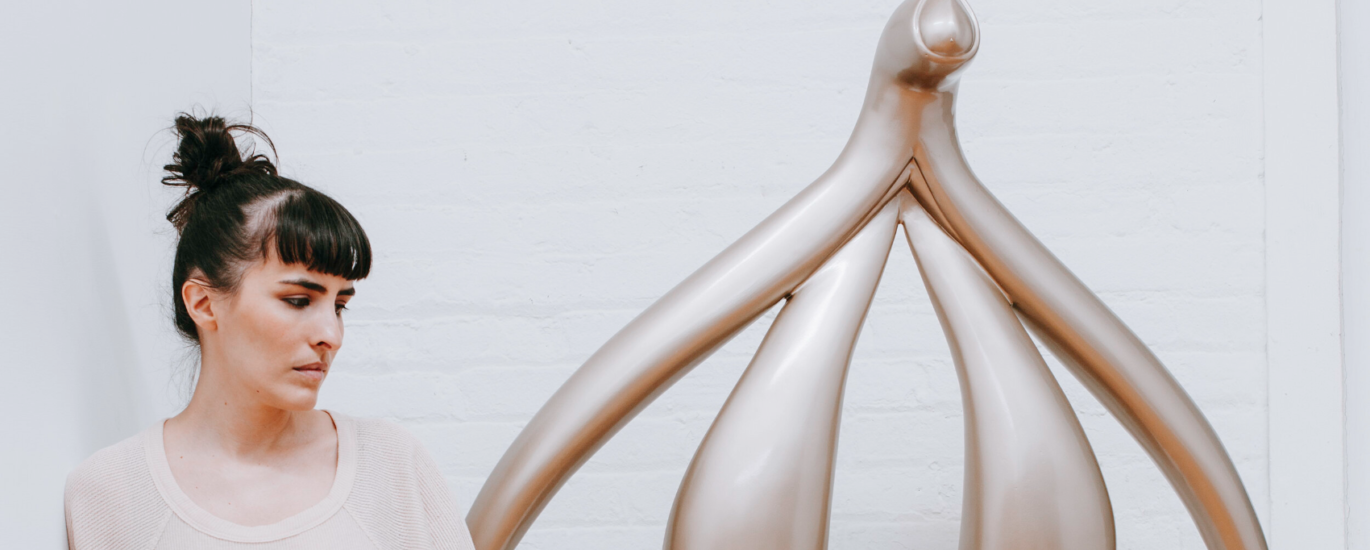“drop out of your head and into your body”
Amy is joined by sex coach and podcaster Danielle Savory to explore our potential for pleasure, practices for overcoming guilt, and how women can rewire our beliefs and become more present in our magical bodies.
Our Guest
Danielle Savory
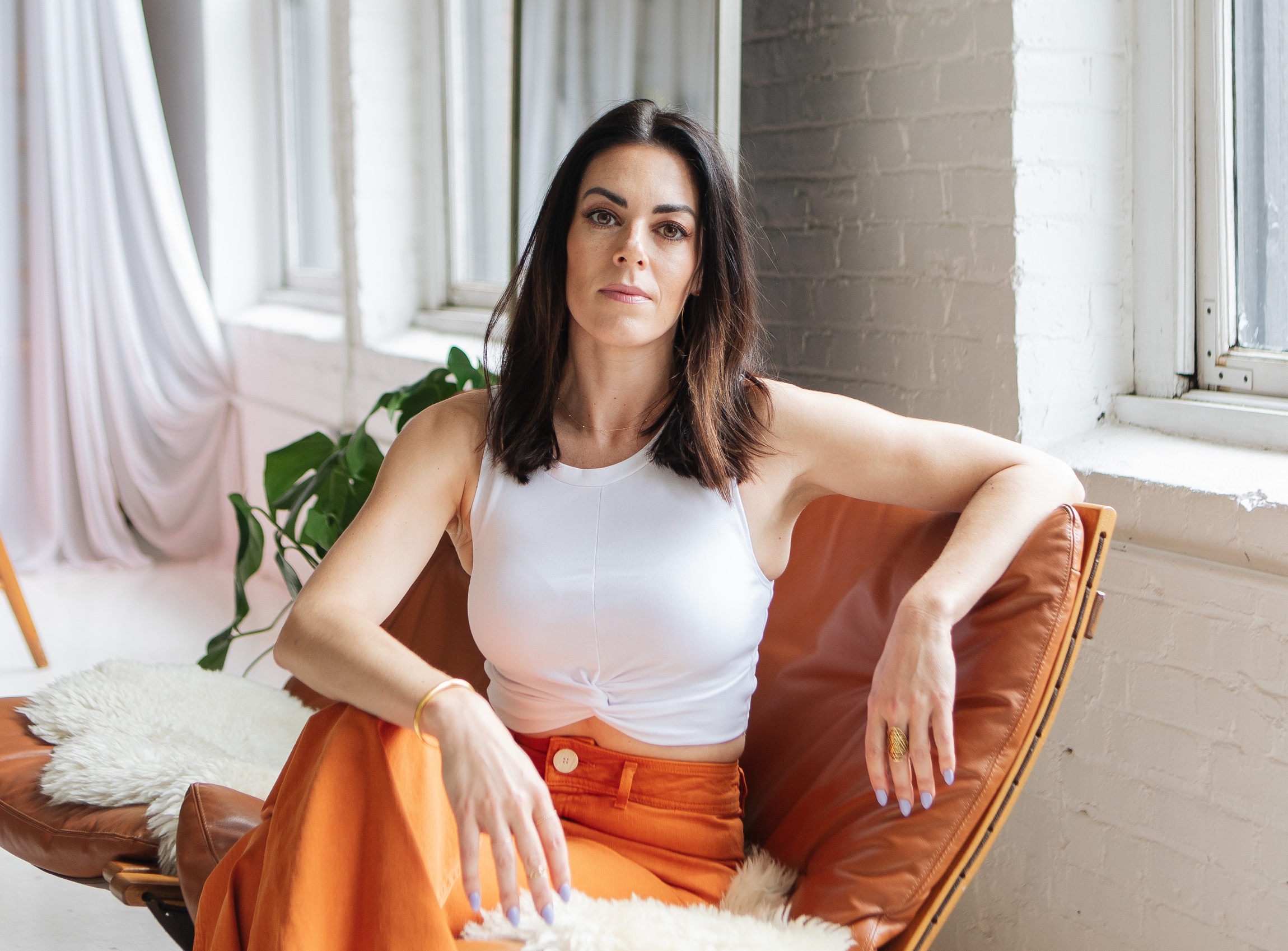
Danielle Savory is a master-certified coach, podcast host, and expert in the fields of neuropsychology, mindfulness, sexual pleasure, and intimacy. As the host of the popular podcast, It’s My Pleasure, Savory has explored a wide range of topics related to sexuality, relationships, and personal growth, empowering women to embrace their sexuality and prioritize their pleasure. She has over 10 years of experience coaching hundreds of women with her proven process of increasing desire and expanding orgasmic capacity.
The Discussion
Amy Allebest: In the 1990s, an Australian medical student named Helen O’Connell noticed that her anatomy textbook spent two full pages describing the penis, while it barely mentioned the clitoris, just identifying where the tiny visible part was. This textbook also described that the whole female anatomy was formed on a baby in utero because of a “failure to turn into male parts.” She underlined the word “failure” and thought, “Hmm, something is wrong here.” During medical school, O’Connell witnessed many penis-related surgeries where great care was taken to avoid any loss of sexual function for the male patient. But no one knew enough about female anatomy to do the same for women, and surgeries and even physical therapy sometimes severely damaged or even destroyed the function of the clitoris. So Dr. O’Connell made it her mission to map the clitoris, and she became Australia’s first female urologist. Her research finally mapped the clitoris accurately in – guess what year? – 2005! She found that the internal structure was ten times bigger than previously thought.
Why did it take until 2005 to map the clitoris, and why was it a woman who finally did it? Because of patriarchy, my friends. The Greek physician, Galen, was considered one of the fathers of Western medicine, and he said that the clitoris was “a stunted and immature organ with no real purpose.” This was very much in line with Greek thought. Aristotle famously thought that females were mutilated males. In 1543, anatomist and physician Andreas Vesalius claimed that the clitoris was “a useless part of the body.” And in the 20th century, Sigmund Freud declared that clitoral orgasms were “infantile” and that only vaginal orgasms were real. Hence, we have an anatomy textbook in the 1990s still describing female organs as being a failure. Women struggle with their sex lives for so many reasons, and a lot of them have to do with patriarchy. So, to discuss this universally applicable topic, I am thrilled to welcome to the podcast the host of It’s My Pleasure, Danielle Savory. Welcome, Danielle.
Danielle Savory: Thank you. I love those two stories so much, so I’m so glad we started the episode with them.
AA: Yeah, they’re pretty shocking, right? The first time I learned that I had to put my head down on the desk and take it in for a second.
DS: Yeah, you’re like “Failure… great.” No wonder.
AA: No wonder, right? Kind of validating to hear. Well, I am so excited to dive into this conversation. First, we’ll get to know you a bit. I’ll read your professional bio and then I’d love you to kind of tell us about yourself a little more personally afterwards. Danielle Savory is a master certified coach, podcast host, and expert in the fields of neuropsychology, mindfulness, sexual pleasure, and intimacy. Danielle brings a unique perspective to coaching, helping clients understand the ways in which the brain and body are interconnected and how this connection can be harnessed to experience the sensual pleasure the body is wired for. As the host of the popular podcast It’s My Pleasure, Danielle has explored a wide range of topics related to sexuality, relationships, and personal growth, empowering women to embrace their sexuality and prioritize their pleasure. Danielle is a master certified coach with over ten years of experience coaching hundreds of women with her proven process of increasing desire and expanding orgasmic capacity. Wow, Danielle, I know a lot of listeners and viewers are going to be really interested in what you have to say today. I’m so excited. But again, before we dive into the meat of the topic today, can you tell us a little bit about you? Where you’re from, your background, and what brought you to study and research and help women with this topic.
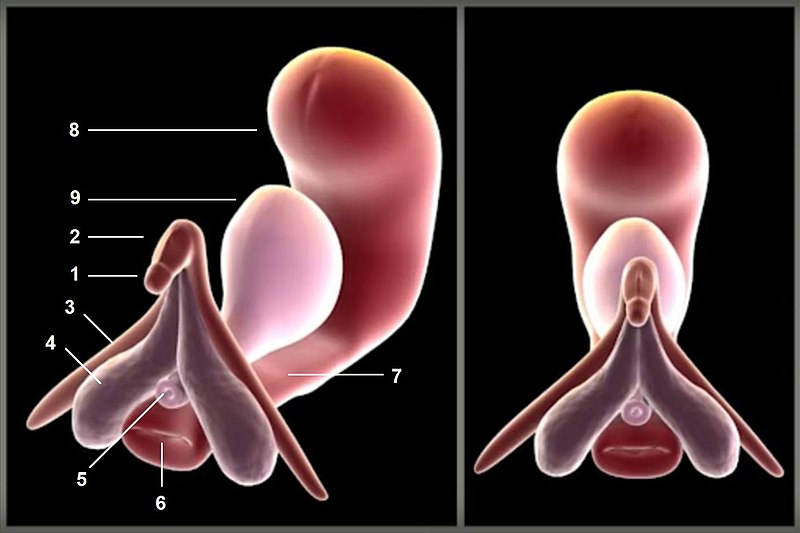
1=Glans clitoridis; 2=Corpus clitoridis; 3=Corpus cavernosum clitoridis; 4=Bulbi clitoridis (Bulbi vestibuli); 5=Urethra; 6=Introitus vaginae; 7=Vagina; 8=Uterus; 9=Vesica urinaria.
DS: Yeah, absolutely. I live in Portland, Oregon. I’m a Pacific Northwest girl, born and bred, and I love being outside. The rain does not bother me, I contest so many people. In fact after a few sunny days, I’m like, “Oh, I feel very uncomfortable.” But how I got into this topic is so fascinating because we had these ideas for what our life was going to look like or what we’re going to do, obviously nobody when they’re young was like, “I’m going to be a sex coach.” That wasn’t even in the realm of possibilities, nor was it even something that existed. But I did want to be a doctor and I wanted to specifically be a brain surgeon. And part of the reason why I wanted to be a brain surgeon, looking back, was a little bit because of the patriarchy. I wanted to prove myself, right? Prove myself as a girl, as a woman. I was always amongst the very few girls in the top of my math and science classes, whether it was middle school, high school, and then, of course, in college.
And looking back, I didn’t go that route because I had this kind of epiphany a-ha moment when I was amongst my books and in my studies. I actually looked over at my husband, my boyfriend at the time, and I was like, “I just want to go hang out with you.” Here I am with this wonderful person that I’m so in love with that I want to spend more time with. And it makes so much sense now that I’m here. Because for me, seeing how much productive outside work I was doing for validation, for achievement, for all of these things, when really, I wanted to feel connected. I wanted to enjoy the relationships I already had in my life. So I closed my book and I walked away from the whole neuroscience path. I had done neuroscience in England and I just walked away. And I kind of fell apart, honestly, because once you have identified so much with academia and being this one thing, you haven’t developed so much of your other parts of your life. And I felt really lost. I went through a few different, like, “What am I going to be? What am I going to do?”
And then I dealt with a lot of health issues. Right after my husband and I got married, I became very ill with a lot of pain problems, and I was actually bedridden for the better part of two years. And during this time was really when I found mindfulness as a practice. My minor was actually in Buddhist psychology and philosophy, so I understood a lot about mindfulness from the cognitive perspective and the academic perspective, but had never tried doing meditation or mindfulness. And then I came to this opportunity because of my magical body, as I call it, that really brought me to my knees and it was my saving grace. And during that time I realized how many things were playing out in my head, like that inner narrative that we really talk about. And for me what I really saw was that inner critic and inner abuser, and in that moment I was like, “Of course my body hurts this bad. Look at what I’m living with inside of my head every day.”
And that’s really where everything shifted because I started questioning every single thought, every single belief, and especially when it came to my intimate relationships seeing how that played out over the years. How I was still looking at this for his pleasure, for not wanting to be touched because it really hurt, and unpacking all of it. And I just grabbed onto mindfulness and went and found my mentors that spoke my language, which was neuroscience, so I could understand it from a brain perspective. And then I started teaching small circles, speaking at places like Nike and other corporations about the importance of the brain and mindfulness. And then it moved into sexuality and pleasure, because that’s what I really felt was the most complex and the most fascinating for me, but also such a need and something that I had really sought for myself that I wanted to help other women with.
AA: That’s a really interesting story. I want to double click on one of the things you said really quickly before we move on, and that was that it was surprising to me when you were talking about being in college and being on the track of wanting to be a neuroscientist. I think that some people would say that the feminist thing to do would have been to keep going because we need more women in STEM, we need more women in medicine, like you have to represent to be an empowered woman or whatever. And the patriarchy that I grew up in would have told me, “No, that’s not your job. That’s not your place, you can’t be in medicine, you can’t be a leader. What are you doing preparing to work as an adult? You need to be preparing to be a mother.” But you felt like it was kind of the patriarchal hustle culture, is that what it is? That was like, “No, you have to prove yourself.” It’s just so interesting that you attribute something opposite to patriarchy than I would have. Can I double click on that and let’s explore that for a second before we move on.
Of course my body hurts this bad. Look at what I’m living with inside of my head every day.
DS: Yeah! Well, there are so many elements and so many nuances to patriarchy, right? We can look at it in one place, exactly like you said, where we need more women. And I do believe we need more women in all of these fields. It’s really, really important. But what I found for me personally, and I think this really comes down to empowerment, is like, what are the reasons I’m doing this? And when I really took a look at the reasons that I was doing it, it was because I actually was encouraged in my home and my community, you know, “You’re a girl and you could do anything, be the same as the boys,” all of this stuff. But it was still people-pleasing, right? This place of people-pleasing and doing things for other people. And don’t get me wrong, I’m still in the field of neuroscience from a totally different perspective, but I had to find my own way. I had to find something that was connected to my actual desires.
And the other thing that I think was really fascinating that I was doing was there was so much proving. And I think that whether it’s patriarchy, capitalism, achieving, doing, proving, being successful in these different realms, it wasn’t just like, “I really want to do this.” And that’s what I had to get clear. I really love this topic and I really love helping people, that’s what it really came down to. But so much of my driving force and my motivation was that I wanted to reject the “You can either be smart or you can be pretty but you can’t be both” idea. So I was like, “Well, I want to be known for being smart and I don’t want to be known for these feminine qualities.” And that was my own patriarchal wiring, that I looked at being smart and achieving as better than these other feminine qualities. So to be able to choose to walk away from something where it does feel like this rah-rah feminism, that’s when I’m saying I dissolved and fell apart. Because it really felt like I couldn’t win. It was either going into this one arena that I would get so many accolades for, the things that I did believe in, which was having more women in this field, and then on the other side, it was still a “should”. It was still a “should” in all of these ways and it wasn’t actually honoring what was going on in my own body and I knew ultimately that there would be something else out there that brought it all together.
AA: That’s so important. I love that we hit on that really quickly, the self-knowledge and trusting the self as a resistance to patriarchy. No matter what form it comes in. It can come in all sorts of forms.
DS: I think that sometimes the way that it’s described makes women feel like maybe they do want to be a stay-at-home mom and want to raise their children, and then that feels like, “Well, I’m a feminist. I shouldn’t want to. I can’t be bad.” And that’s what I think it comes down to, is questioning “what is my motivating factor here?” and really honoring what your deep desire is. And where is that coming from? Is it coming from a “should” or from other people’s desires? Am I trying to manipulate and mold the way people view me or is it because I truly want to, deep down in my soul?
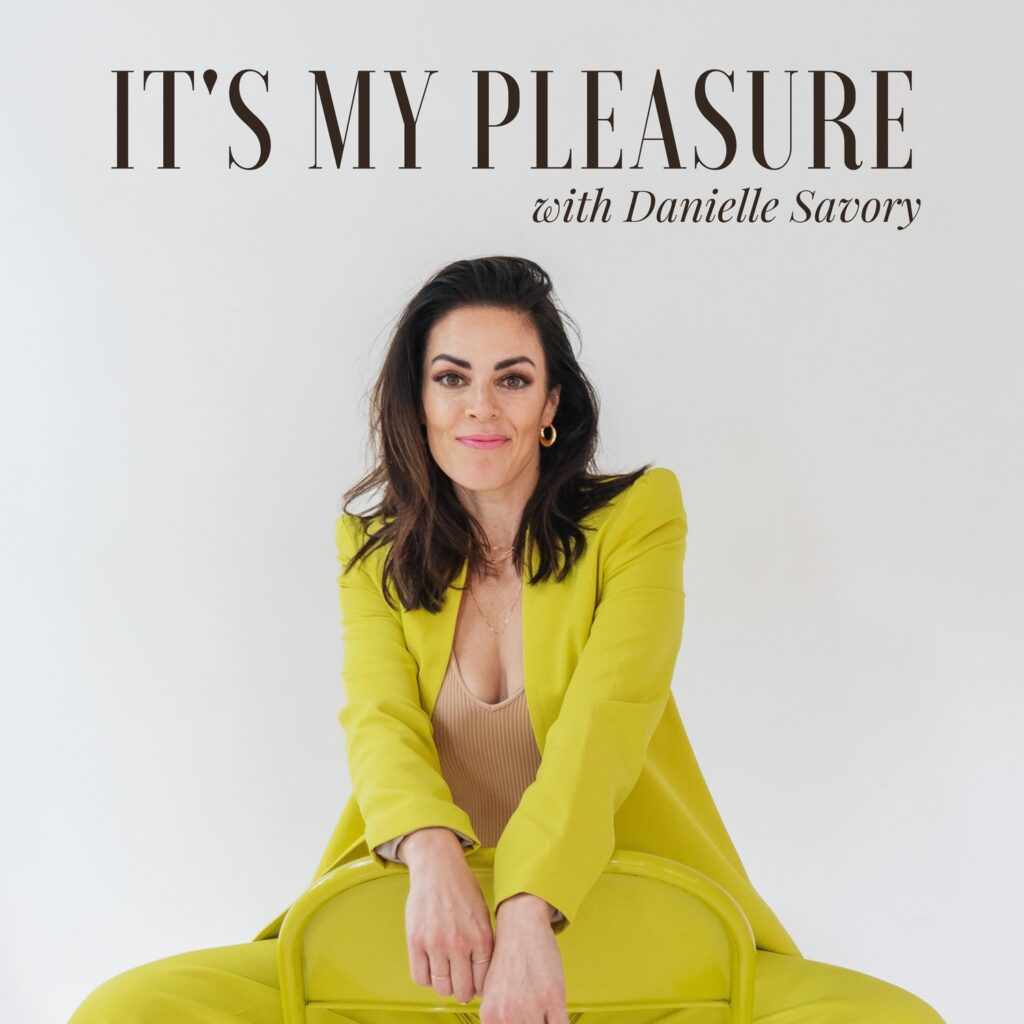
AA: Love it. Fantastic. Well, thank you for that intro, Danielle. I have a feeling that self-knowledge is going to be a theme in this conversation. We’ll see how it plays out. But I thought maybe we can format our conversation by asking you questions that come to my mind when I think of struggles that I’ve seen in my life or with my friends, women that I know, things that have come up in conversation. And then you tell me what your advice would be or what your thoughts are. The first one, unsurprisingly to my listeners, is religious purity culture. That was a huge, huge influence in my life and in the lives of the women that I know. The way that manifested itself for me, in my context, was equating goodness with being non-sexual so that sexuality makes you feel guilty. And actually this doesn’t just affect women. I remember feeling quite validated and like, “Oh, it’s not just LDS or religious women” when Conan O’Brien once made a joke that his Catholic upbringing meant that every time he had sex he felt guilty. And that made me so sad, but I was like, “Oh yeah, this is very widespread.” So, how do you combat that?
DS: Yeah, it’s interesting because even with Conan O’Brien, he’s still in a Catholic religious upbringing. I personally was not in a religious upbringing, so a lot of people think that I was not impacted by the same upbringing that they were, and it is not the truth at all because it is so widespread. Whether or not you grow up in a religious community, in a religious home, the impact of religion and the messages of religion all around us, especially in this country, are still there. You’re still hearing it and you’re still absorbing it. And in my home, particularly my mother was very open with it. Both my parents were still kissing and making out to a certain extent, right? Like grabbing buns, there was an intimate relationship with my parents, which is so beautiful. And I remember growing up with that and then going out into the world around my friends. I grew up in a community where there were a lot of LDS and a lot of Catholics. And, of course, when your brain switches into looking for social validation, it doesn’t matter what your family is doing. You’re looking for that validation outside and in your friend group. So I would still hear all of the things they would say and the things that made them cover up or the ways that they would ask questions with kind of a side-eye or judgment of like, “Well, how far did you go?” or “What are you planning on doing?” So it still had a huge impact on me growing up.
When it comes to guilt, one of the things that we have to ask ourselves from the very beginning is, what are the beliefs that are creating guilt? Because we kind of whitewash it like, “I just feel guilty,” and we forget that feelings and emotions, especially those really strong ones that have been there for a long time, are a response to something going on in our brain. They’re a response to a neural connection of a seed that was planted a long time ago, and those neurons have been so used to firing together that they’ve wired together. So anytime we go into a context of looking at sex, the brain is going to be like, “What do we know about it?” And it’s just going to fire it off before we even consent to all the beliefs that our head is flooded with, and now our body feels guilty. So we feel the guilt, but we forget that there’s this whole part, that our brain is being as efficient as it is and just wants to grasp onto all of the learning and hop forward to having us feel how we’ve been trained to feel, which is guilty. So when we separate each one of these – “What is going on in my mind? What am I feeling in my body? What was the trigger that created all of that?” – then we can start to peel it apart.
Instead of looking at it as this whole, “I just feel guilty, I have to get rid of it,” what specifically were the beliefs or seeds that were planted? And then asking yourself a simple question like, “Do I still believe that?” Or “Do I want to?” That’s a really important one. When we’re talking about self-sovereignty in this realm, it’s never like forcing yourself and other people’s beliefs on you, but like, “Do I want to? I notice how this is making me feel, I notice how it’s creating this wall between me and my partner when it comes to intimacy. I actually don’t want to feel this way.” And when we can do it from that, we have a very deep “why”. And when you have a deep “why”, then we can start to pause and create change. But why do you want to not feel guilty? I think that’s the first question. And then seeing that belief in there of, “Oh, I actually don’t want to believe that. I want to believe that it’s okay for me to connect with my partner or with my spouse. I really want to believe that my body is wired for pleasure and this actually can be an expression of that.”
It’s not going to happen overnight, and that’s the other thing we really want to understand. Just because you decided you don’t want to feel guilty anymore, the way neuroanatomy works is that it’s going to take a minute to create a new pathway. It’s going to take some time to break down those old beliefs. But if we have compassion with ourselves in that process– like for me, when I’m going through any changes I want to make, especially neuro-connection changes, I acknowledge the pattern where it keeps coming up. And my endearing term for myself was “baby girl”. So I’m like, “Baby girl, of course you feel guilty. That seed was planted when you were really, really young, and that belief kept you safe. It allowed you to belong with your family. It allowed you to belong with your community. And we’re learning something new now. We’re going to let go of this one. We’re learning something new.” So not judging or shaming and being like, “I just want to get rid of this guilt! Why is it still coming up? I don’t believe in it.” But really honoring that part of you that’s scared to believe something different. Because honestly, there was so much fear instilled at that age that if you were to step outside of that, you would be isolated or kicked out of the community. So of course that belief served you for a long time, because it kept you safe. So acknowledging that, especially when it comes to guilt, is so helpful because then it allows us to have compassion with the process. That was a very long answer, but I think it’s really helpful for us to understand what’s going on and have compassion for ourselves when we’re trying to change these really deep-seated beliefs.
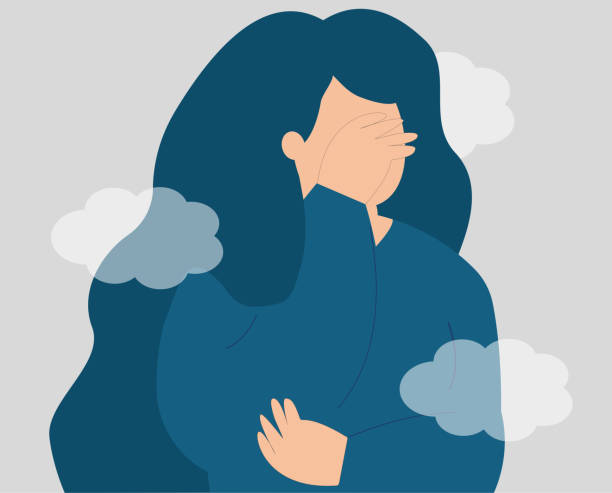
AA: That’s so important. I can really, really relate. I feel like anything that I’ve tried to change that comes from childhood beliefs, you can know something in one part of your brain but the rest of your brain and your body, it’s like there’s no wire connecting them. It feels like it’s stored in your body and it can feel almost like even if you don’t want to believe it anymore, it feels more comfortable to keep believing it because that’s all you’ve ever known. Even if you don’t want to. Yeah, it is tricky.
DS: Yeah. It is tricky. And that’s why it really does become a brain and a body approach, because we need to meet the part of the nervous system that is really afraid. We need to meet the part of the nervous system that is triggered as we’re starting to create more of those new neural beliefs. And realizing that this old part, it’s just that. It’s an old mental event, it’s an old habit of the body. It’s stored in the body and that fear is real, but when we can create safety, then we’re able to move forward.
AA: That’s really great. This is kind of getting into the details of it, but I did have a question. For you as a therapist, I would imagine that some of the things that you prescribe for your clients to do to help them get over some of the beliefs that they don’t want anymore are specifically prohibited by a conservative religion. Like, I know that in sex therapy it’s really important to masturbate to get to know your own body. And some people are like, “I can’t do that. That is off the table. I’m not allowed.” Like, literally, they won’t allow themselves because they still believe it’s bad, or, “I just can’t because I feel so guilty.” And even taking on sexual things, like looking at yourself nude in the mirror, but the programming is too strong. Do you find that in your coaching, that sometimes people just won’t do the stuff you want them to do?
DS: Yeah. Well, first I want to be clear that I’m not a therapist and it’s not sex therapy. Just because I don’t want anybody out there to be like, “You say you have a title you don’t have!” With coaching, we have leniency to do a lot more. For me, coaching becomes more of a somatic practice. So, yes, you do see a lot of these types of approaches in sex therapy. With my somatic coaching and mindfulness coaching, first and foremost, it’s always asking, “Is that something that is a hard and fast rule for you?” Always bringing it back to, “What are you willing or not willing to do and why? And do you like your reasons?” I think that’s super important. Like I said, I have worked with a lot of people with religious upbringings and who are still in their religion, and there’s a whole spectrum of what people are willing to do and what they’re wanting to hold on to. I might work with a Catholic woman who has no problems touching herself and then somebody else who is like, “No, and we only have sex during this time,” all of the things are still intact. So it really depends.
I think the question is, what are you wanting to keep? And if it really comes down to your religion and staying faithful and keeping that line there, what parts of it are you okay or not okay with? And I do think that that’s an important question because it allows people to decide for themself and their own spirituality what rules are really meaningful to them. But once we do that and there are these restrictions, I like to think of it like, okay, if it’s really about pleasure and being more comfortable with your body, how can we drop into other parts of our body? Like when you’re taking a shower in the morning, can you really connect with the sensation of you massaging your scalp? And I know that’s like, “Well, how is that going to help?” But it’s still building the muscle presence of receiving touch that feels good and feels pleasurable, and it’s not crossing that line for a lot of people that have that hard rule about pure sexuality or this is off limits. So there are a lot of ways that we can still work on cultivating the skills that ultimately are meant to make us feel good. But when there are a lot of those rules and those restrictions, it’s a lot more challenging. And that’s when a lot of people have to ask themselves, “What part am I taking with me?”
AA: That’s so helpful. I’ve never heard that phrase before: “Why do you have these rules and do you like your reasons?” That’s so powerful. Wow.
DS: It’s a great one. Because I don’t think a lot of people pause. We’re just like, “I’m in this community, I’m in this religion, I have to do everything.” And it’s like, “No, you actually don’t.” And when you get into why, a lot of times with my clients, when you get into why you’re in this religion to begin with, it’s a connection with God and it’s a connection with yourself and your spirituality and asking yourself questions. Like, “Does God have these rules for me or just the church?” And separating those two things so that you can make choices for yourself.
What are you willing or not willing to do and why? And do you like your reasons?
AA: I love it. Okay, moving past religion and out into more broadly applicable things. One thing that I was shocked to read in Peggy Orenstein’s book, Girls and Sex – I read it maybe ten years ago and I’ve read it a couple of times – was that these teenage girls in the Bay Area in California, not religious and very, very progressive, empowered girls. When she interviewed these high schoolers about their sexual experiences, they still were saying that they were doing things for their boyfriends, or maybe not even their boyfriends but just a hookup, but they were doing things for the guy’s pleasure a hundred percent. And when she would question them like, “Does he do that same thing for you, for your pleasure?” They were like, “What? No!” And that was really shocking to me because again, that’s something that I maybe attributed too much to a religious context. So, do you find that? And then how do you combat that kind of women centering men in the sexual experience?
DS: Yeah. Well, it’s shocking because you realize how rampant it really is, but then when you pause and you go, “Where have we ever gotten a message that it could be anything different?” it becomes very not shocking. When we think about the way that the home is set up, especially when you look at the ‘50s, not having financial freedom, when we think about sex education, even if you look into porn or rom-coms and the way that they’re depicted, it is about him. In heterosexual relationships, we learn about sexual pleasure mostly from the male point of view. I mean the fact we didn’t even have a map of the pleasure organ for women until less than 20 years ago is really a striking example of that. But even beyond that, I like to think about desire too, not just sexual pleasure. When you think about desire, whether or not you were brought up in this religious context, there have never been moments where girls are really encouraged to understand their own desires. We are taught from day one how to be desirable. Don’t speak too loud, be kind, cross your legs. How can we be desirable not just in the sexual realm, but how can you be desirable so that you’re a good girl around your grandparents? So that you’re a good girl in class. Don’t speak up, the boys are the wild ones. You need to be quiet, you need to do your work.
There are so many messages for girls to be liked, to be good, to be desirable to our society as a whole, that anytime we even have an inkling of a want or desire that sparked within us, we always put it through the filter of, “Is this desirable to everybody else?” Which really goes back to my own story and what I realized, right? There was never like, “What do I want?” So these girls have never actually been asked, “What do you want?” It is more secure for us and it’s been, historically, for generations and generations, more safe for us to not pay attention to our wants, to our desires, and to solely be focused on “What do they want? What can I do so that they like me, so that they want to be with me, so that they think I’m one of the cool chicks and I’m not like those other high maintenance girls?” Whatever it might be. It makes sense that this is going to continue on in our sexual relationships, in our bedrooms. We never have been taught outside.
And this still to this day is something that comes up even with women who are like, “No, no, no, I’m not like that. I don’t do things for him.” It is such a deep one that we don’t even see the way that it materializes in our life. Even small comments and jokes you hear all the time on sitcoms like, “Oh babe, I have a headache. I can’t tonight.” Why? Because we’re looking at it as something we’re giving away to him, right? So then I can keep it away. Then I can keep it for myself. But if you looked at it as equivalent to you going and getting a massage, and they’re like, “Hey babe, you want to go and get a massage and you’re going to feel so relaxed and so good afterwards?” We’d be like, “Absolutely!” But we don’t, because we still feel like it’s something we’re giving. And we don’t look at it as an opportunity for us to receive, an opportunity for us to feel nourished, an opportunity for us to be seen and to be taken care of. We’ve never had sex presented like that. So of course, we’re only going to be thinking about it for them and what they want.
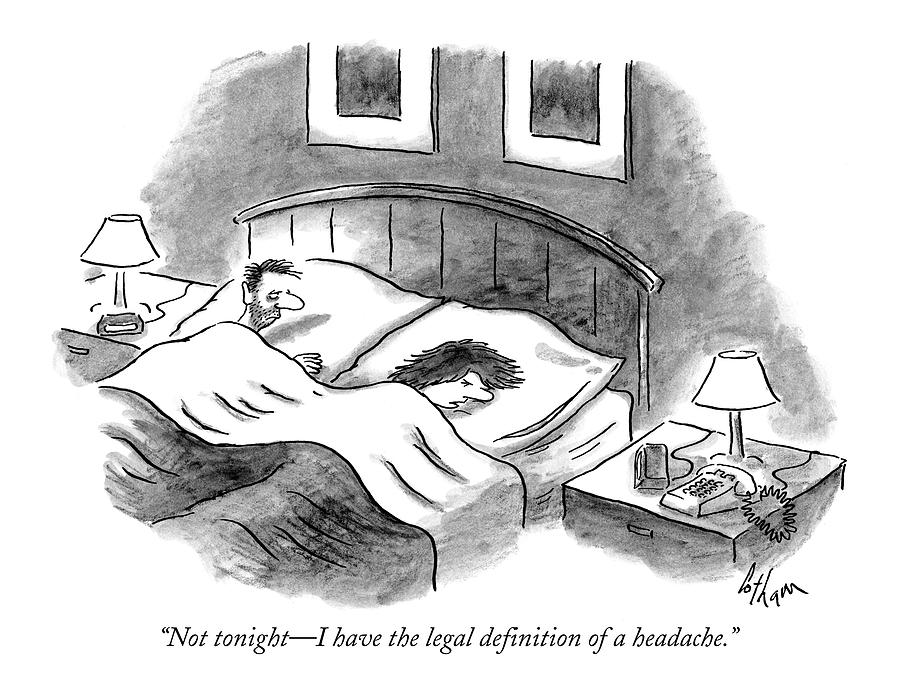
AA: How do you coach women to then shift to being the agent and being the embodied one who’s thinking about her own pleasure? How do you shift that for women? And how do you shift that for men, if you do work with men also, to be like, “Sweetheart, this is going to be uncomfortable for you but it’s actually not going to be all about you now.” Even if they didn’t realize they were doing that, if they were doing that.
DS: Yeah, there’s always a little bit of stickiness at the beginning with big shifts and changes. But I think the acknowledgement, especially for men, when they understand that, they’re like, “Of course I would want my woman to feel good. Of course, I don’t want her doing something she doesn’t want to do.” If you’re in a loving, supportive relationship, then it’s not a question. Is it an adjustment? Is it a hard thing to get used to? Yeah, for sure. And ultimately, it’s better for both of you and you want the best for your person. Of course I want my husband to feel loved and appreciated and wanted and taken care of, and we have to give our partners the benefit of the doubt that they also want that for us. And as it goes for coaching women, depending on where they’re at, it comes back to really understanding where these beliefs were planted and then strategically and intentionally rewiring this part of the brain.
I always start with a very simple belief that pleasure is possible. And what I mean by that is that it’s possible that this could feel really good for me. Maybe it’s tonight or later. Or, it’s possible that I could receive pleasure. Or, pleasure is possible tonight, even though I might feel tired. If we pause and insert the idea of possibility, it allows your mind to get out of the box of always saying no or shutting it down or thinking it’s for someone else. We want to get in there just a little bit to start untangling it with the thought of something like, “It’s possible. It’s possible that this is for me.” And then letting your mind come up with all the examples of why this is for you or why it could feel really good or why it could benefit you. And this for me was, and continues to be, one of my main areas of research and work, is coming up with all of the ways– my background is neuroscience, so I like to really understand that my brain is going to be more optimized when I feel connected to my body, when I feel connected to my partner, when I’m experiencing more pleasure, and all of the internal resources that I develop as I’m cultivating more pleasure.
AA: I was looking at your website too, Danielle, and it was talking about pleasure being almost like a source of creativity and empowerment, and that it translates to all these other areas of your life. Can you talk about that a little bit? Because you just compared it to getting a massage, but why would being in touch with your sexuality be able to have this ripple effect of empowering you in all these other areas?
DS: Well, how long do we have? I’ll give you the CliffsNotes version. I am a person that loves self-growth, obviously, and that’s why I made a whole career out of it. So when I look at something, I always look at it as an opportunity for personal growth. And when we take a look at sexuality, for most of us, even if we are interested in personal growth, our sexuality is still not something we consider as a realm of personal growth. But from my experience, and from the thousands of women that I’ve worked with over the last decade, sexuality wraps up so many of these beliefs, thoughts, patterns, and habits that we are completely unconscious of. So when we focus on prioritizing pleasure, when we focus on integrating our sexuality, all of this stuff comes to the surface so much faster than if we were like, you know, “I just really want to work on being calm around my kids.” So, it’s all the things that you actually would want to work on anyway. When you start with sexuality, they’re brought to the surface quicker. You see a direct reflection of your “progress” quicker because you realize that, “Oh my gosh, me being so stressed around the kids or yelling in traffic is triggering my entire nervous system into the stress cycle. And then when my partner initiates, of course I am going to push it away.” Because when you’re in stress, the last thing the body wants to do when trying to escape a tiger or a threat is to get it on. You don’t have time for that, right? So of course you’re going to push it away. There’s literally no blood flow to your genitals.
But when we start with looking at desire and sex, all of this stuff becomes really clear. All of these patterns become really clear. So from a purely personal growth standpoint, I don’t think that there’s anything else out there that brings to the surface so much of ourselves, so much of our awareness of what’s been operating on default or autopilot or the subconscious. The other thing I love about it is that unlike some of the other realms that we might be working on as far as personal growth, you don’t always have to be connected with your body to get the results that you want, right? You can get really in your head, like, “I’m going to create this business.” We know a lot about creating businesses here, right? Like, “I’m going to get into creating this business and it’s going to be a success.” And in your mind you can be like, “I’m doubting myself,” or, “I just need to be more comfortable with failure,” or whatever. You can do a lot of that stuff by shifting your mindset, and even though the body’s involved, it’s not as much of an issue for you to pay attention to it. And I’m sure some somatic coaches are hearing me and be like, “No, no, no, that’s not true.” And I’m like, “I hear you, I see you, and we’ve seen it a million times. We’ve seen so many people create success that are only operating in their lives from the neck up.”
When you talk about sexuality, you can’t experience desire and pleasure to the level that I’m talking about without being present in your body. You really have to learn how to drop out of your head and into your body and into an experience and deep presence with yourself and with your partner. It requires this relationship development between you and your body where we don’t see that. We normally override our bodies in so many other areas. And then I could go off about all of the physiological impacts. The blood flow, the oxygen to the regions of the brain. When you look at how we create resilience, when we look about how we create responsiveness, we really want to open up portals to more creativity. If we want to use our amygdala for motivation, pleasure really is a key for us to be able to do all of these things and the neurochemicals that are released in our brain when we learn how to connect to our body, when we learn how to slow down, when we learn how to pause, when we learn how to set aside frustration and impatience, which are all the things required when we’re developing deep intimacy with ourselves or partners, those internal resources get taken care of.
AA: Wow. That’s really, really powerful, Danielle. Thank you for sharing all of that. One image that came to my mind, as you know, I live in Utah now, and I was invited by a friend to go to this sensual dance class. And the first time I went, I cried and I was feeling kind of self-conscious. And then I looked around and half the other women were crying. And I talked to the teacher afterwards and she’s like, “Oh, everybody cries all the time.” Just the connection to the body in this way, and I feel like a lot of these women were reclaiming things that they lost when they were younger. It’s really, really powerful to drop down into your body again.
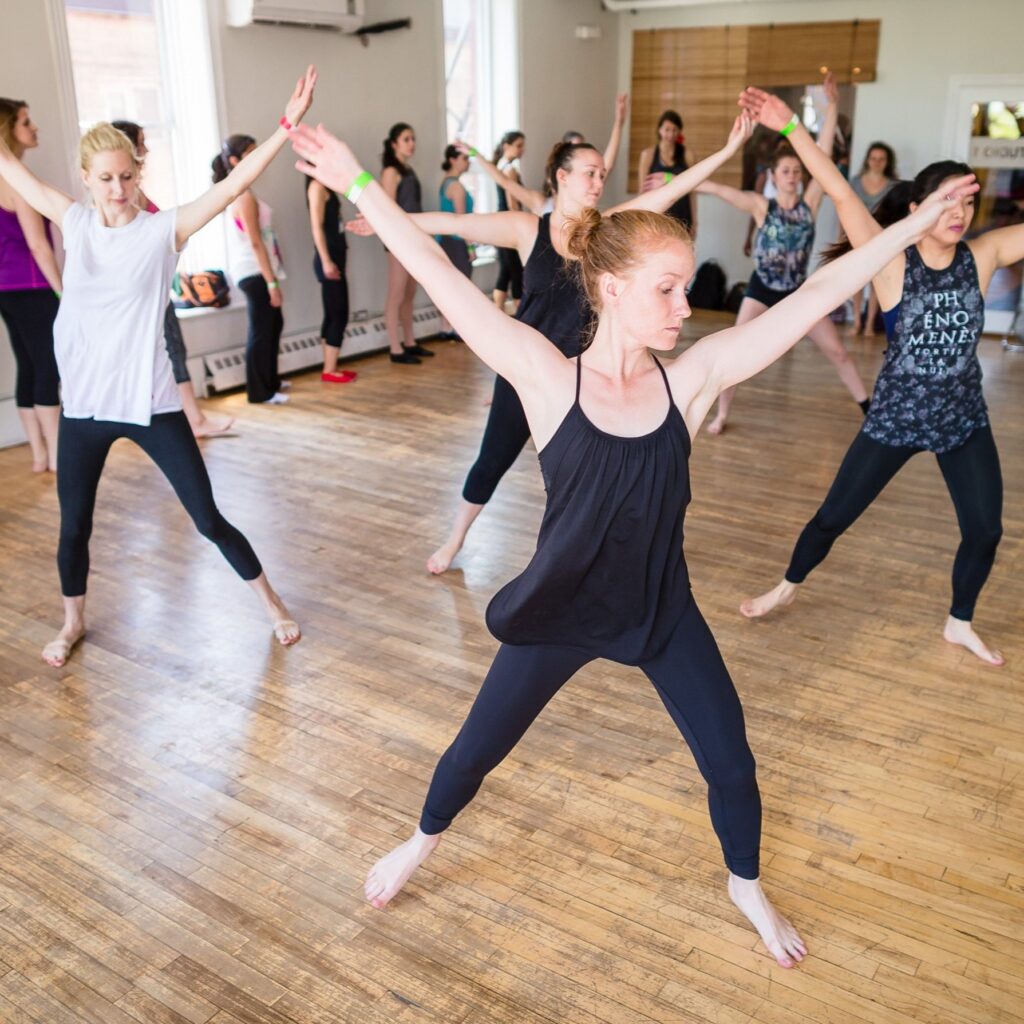
DS: Yeah. I’m so glad that you brought up that example and that story because from out here, when we look at what society can get on board with, these are usually the things that I share because they’re easy for us, you know, dropping into this conversation to be like, “Well, if it’s going to make me more resilient at work, or more calm with my kids, or more present…” Because we’re used to seeing, again, how we’re going to impact everybody else. But for you, and especially for women being dissociated from such a powerful and important part, an essential part, it’s like, you really think you want to show up as a whole woman but yet there’s this one part that doesn’t matter. “That’s not part of me. It doesn’t belong.” And we reject it. How can we ever expect ourselves to show up fully, and boldly, and powerfully, and vulnerably if we’re still rejecting a part of what makes us a human being?
AA: So important. Well, let’s hit a couple of other barriers or obstacles that women often face. One of them that came up for me is body shame. I feel like from the time we’re toddlers and we are standing in the checkout line at the grocery store at eye level are all the magazines of before and after pictures of women’s bodies, right? Our entire lives we are absorbing what’s acceptable and what’s not. That’s beautiful, that’s not. That’s worthy of having a sexual experience. And then if someone who doesn’t conform to those beauty norms or that body size norm is seen in a sexual way, it’s almost like people are disgusted, which is so harmful. And it’s everywhere. At least that’s been my experience. Is that this very narrow definition of what a body is supposed to look like, that’s the type of body that deserves to have sexual pleasure, and anything else is like, “You’re not worthy of it.” How do we get over that?
DS: Yeah. Well, it’s a question for us to continue to ask. But one slice of hope is that I have an almost 13 year-old and a 10-year old daughter and that’s not happening with them. Yes, we’re still seeing a lot of it, but not like we were when we look back at what our grandmothers, our mothers, and what we were exposed to. Even in interviews, I’ve seen tons of clips recently of people like Britney Spears being interviewed and being told things like, “You need to lose a few pounds.” If you say those things in an interview or on live television now, you’re going to get canceled. So at least those conversations are happening, or are not happening, right? Those interviews and those conversations aren’t really happening as much, especially in the media. Again, I don’t want to say that it’s completely eliminated, but I do think it’s important for us to see that as a society, we are starting to see the harm. And it’s conversations like these and it’s women now being in these places where we have a voice. We get to have podcasts, we get to point out this kind of stuff that allows the rest of us to be like, “That’s not right, and I don’t want that.”
But for many of us that grew up with those types of interviews, those types of Victoria’s Secret magazines in the ‘90s, the damage is done. It’s already there. It’s inside of us. So, acknowledging that that is a part that needs healing is part of reclaiming your body for you and for your own pleasure. And especially because we have received all of these messages, so much of the way that we typically relate to our bodies is through the sense of our eyes, right? What does it look like? And when we come to sensuality, the definition of sensuality is our senses. So when we realize that maybe with this one sense I’m struggling to love my body, that’s okay. But can I close my eyes and can I feel it? Can I see what it does? We start to create an appreciation of our bodies through our other senses. And doing that love for your body, or at least the acceptance of your body, is going to grow and it’s going to make that one part that is unaccepting less than. And then we can start to work on body image. I think that’s such a beautiful healing process where we start to feel our bodies. And when you experience more pleasure, when you experience more delight, you’re just like, “Okay, so I have some wrinkles, some extra stuff to grab onto. I’ve got some sagginess over here, whatever. It feels so good. I love this body and it’s really offering me a lot.”
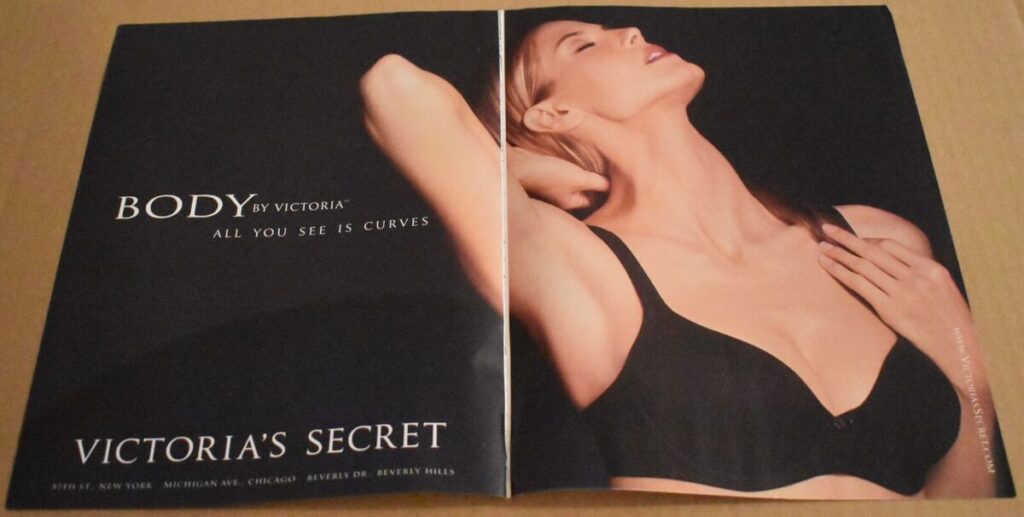
I think understanding that there’s so much more to a relationship with your body than just what your eyes see, and understanding that what your eyes are seeing is really not even your eyes, it’s society seeing your body and you trying to view what they see. And we start little bit by little bit. The thing that I love to start with, because we’re not going to jump from hating or rejecting our body to loving it, that’s such a large leap for us, but just being like, “Here’s my body. I’ve got a human body. All bits belong.” Then that’s it! And just starting with that tone of like, “Hey, I see you. You belong. You’re part of me.” And then moving on. There’s an agreement that I always say to my daughters, “You’re not allowed to talk to my daughter that way.” And so I say to myself, “You’re not allowed to talk to my love like that.” If I consider myself the love of my life then I would never let anybody else say those things to me. Why would I let myself say those things? Just interrupting that language and being no longer available to spew vitriol towards yourself or your body.
AA: Wonderful. So, so helpful. One more obstacle that I think comes up for women who are in the phase of being moms, running a household, having a lot of kids, and we all know that women still are picking up a disproportionate share of the housework even if they are working outside the home, they’re still doing more work at home. And sometimes it’s a libido killer to have little kids with you all the time. Maybe you’re nursing, maybe you have toddlers hanging on you and you almost have an overdose of human touch. You’re just so exhausted for those reasons. How would you coach women in that position?
DS: Well, I think that one of the things that we want to acknowledge is what the nervous system is going through and naming it. Like, “Of course my body is retracting away from my husband’s touch. I’ve been having little people needing me and touching me constantly.” It makes sense. But what we understand is that when your nervous system is dysregulated, when it is overstimulated, and most women, when they have young children, are going to have an overstimulated nervous system. It’s really hard not to. You’re trying to keep human beings alive. Not to mention the noises, the smells, all of that. When you think about what the nervous system is taking in and how it responds to that, it’s pretty hard to not be dysregulated or overstimulated. So, we can give ourselves the grace and the understanding that this isn’t a me thing. This isn’t me not wanting my husband. This isn’t me not having a libido anymore. This isn’t me… All these fill in the blank. This is a human body who has been overstimulated for the last 12 hours and it’s likely operating on very little sleep. Of course it feels like too much. Of course this feels like an effort. And when we start with an understanding and compassion, that is when a door of possibility opens.
But it’s when we start judging ourselves or blaming ourselves, or even blaming our partners for all these things going on, we’re not actually pausing and taking a look at what’s really going on, which is that your nervous system is overstimulated and you’re dysregulated, first and foremost. We can look at all that stuff later, but it’s like watching your kid riding their bike and falling off and they’re bleeding because they scraped their knee, and you’re talking about how they aren’t looking the right way and then they crash. We have to deal with the bleeding knee first. And I think that’s the most important thing. It’s when we start to meet our nervous system there that we can be like, “Oh, yeah, I am dysregulated. I am overstimulated. Let me recenter, let me ground myself, let me take some time.” And then from that place we can really have an opening of what’s possible.
I think the other thing is that we still think that we’re supposed to have spontaneous desire, which is what’s depicted in the media and what we have when we’re really young, which is that I see my partner and I should just want it. Most women, and especially women that are overstimulated in early motherhood, experience responsive desire, which means we actually need to be in action before we want it. But we don’t give ourselves an opportunity to be in action because we’re overstimulated. If you pause, if you reset, you check in with your body, then you’re like, “You know what? Maybe a little massage from my partner sounds nice.” And that’s it. There doesn’t have to be any strings attached that it moves any further, but as you’re getting touched, as you find yourself being more relaxed, maybe all of a sudden it might sound like an idea you can be curious about.
when we start with an understanding and compassion, that is when a door of possibility opens.
AA: Love it. That’s super, super helpful. Okay, Danielle, what did I miss? What are some issues that come up for you when you’re helping clients that we haven’t talked about yet?
DS: There are so many, but a constant question is, “Is this how other women are? Am I taking too long? What’s wrong with me? I can’t orgasm.” When it comes to actual pleasure, it’s these questions like, “Is there something wrong with me?” We talked about a lot of the “shoulds” that happen that activate your nervous system, which makes it harder to experience pleasure. But also staying focused. A lot of women don’t feel focused. Their mind is thinking about an email, they’re impatient, they want to just get it over with so that they can get a good night’s sleep because they’re exhausted. There’s so much that happens during, and that’s the other thing we want to take a look at. Some people think they’re taking too long and so they become impatient. Some people don’t feel like it’s worth the time, even though we’re talking maybe five or 10 extra minutes, but because they’re worried about their sleep. And so really paying attention to where my mind is going. What is it worrying about during these moments? And again, not making it a you thing. It’s a human thing. We do not focus on our body or on our sensation most of the day, and then you expect your brain to just know how to do it because you’re getting it on with your partner. It doesn’t work like that.

It is actual focus and presence in your body. And pleasure is a skill. We have to create safety so we can receive, and we have to learn how to cultivate the skill of presence in our body so that we can actually experience pleasure. Your brain thinking thoughts and wandering off, that’s what brains are supposed to do. It’s like, “You know what? I’ve been here. We’ve done this like a hundred times. I don’t actually need to be here. I can think instead about the email I forgot to send because that feels way more important because I’m already done here. So body, you take over and you just do this thing. I’m going to go figure out this problem over here.” We need to remind ourselves that our brain is actually worried about efficiency and making sure we’re on top of things. So when it thinks you’re doing something it knows how to do, it’s going to check out. Not because you lost that loving feeling or you don’t care about your partner or anything else, it’s because your brain is brainy. I think this is such a good shoulder releaser for all of you, listeners. It’s not you, it’s just your brain, and we can develop a skill that helps you stay in your body.
AA: Well, I can imagine this is why it’s so useful to have a background in, I mean, even Buddhism and meditation and being present. Because that seems like one of the most important skills, is to bring your attention back to the present moment, right?
DS: Yeah. To what’s going on in your brain, to the thoughts that you’re having, to presence in your body, to what you’re making, what your partner is doing and what it means about you or your relationship. Awareness is a skill that’s required in all of these areas.
AA: Wonderful. Well, Danielle, I’ve been so inspired and uplifted, and I’ve learned so much from you. This has been a fantastic conversation, and I’d love to leave listeners with your thoughts. Some information about where they can find you. I follow you on Instagram and love everything you’re doing. So tell us all of the different ways that we can find your work.
DS: Yeah, absolutely. Instagram is @thepracticeofpleasure. I have a podcast called It’s My Pleasure. I haven’t released any of the new episodes recently, but it goes all the way back to 2019. And I just had a listener be like, “Start at the beginning, you will not regret it.” But it really breaks it down from the very beginning as you move through the podcast. And then on my website there are a couple of freebies. We can drop the links here in the show notes. But if you really are wanting to connect with your body, I would say just take the free course. It’s daniellesavory.com/savorystarter, and that’s a non-sexual way to start to develop the skill of presence in your body. And I also have a free course called “Fresh”, and this is about how to make a long-time lover new again, because we really want to help you keep that spark alive in your relationship.
AA: Wonderful. Well, I’m going to check all of those out myself, honestly. This was so wonderful. Thanks again, Danielle Savory. Thanks so much for being here.
DS: Thank you for having me.
Do I still believe that?
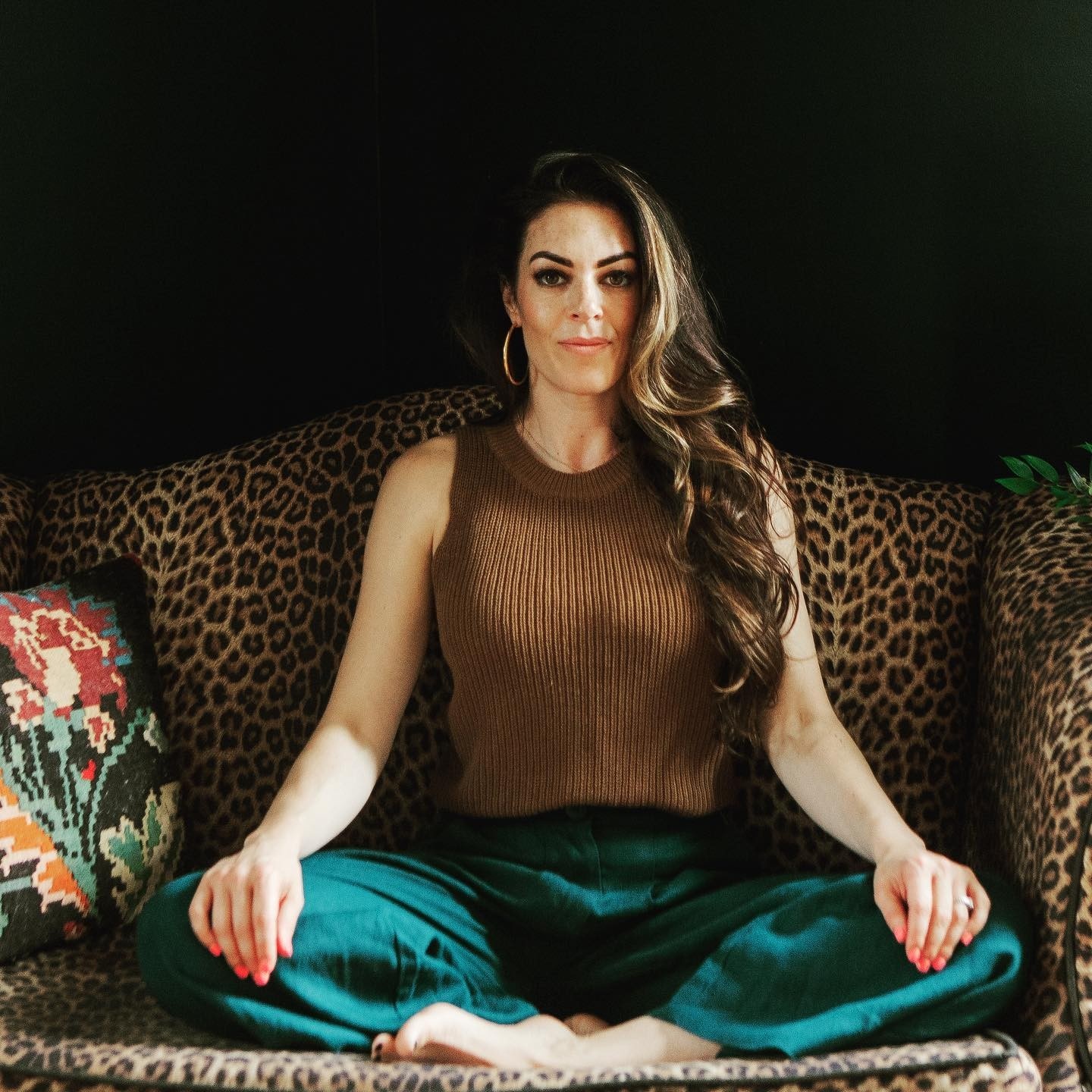
Do I want to?
Listen to the Episode
&
Share your Comments with us below!

